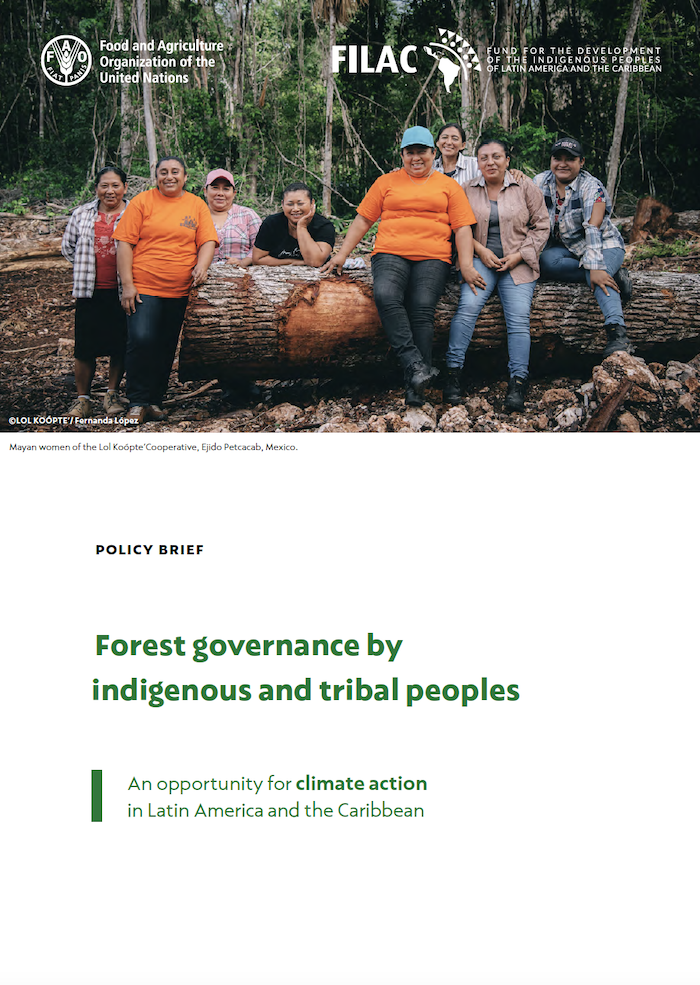Resource information
Indigenous and tribal peoples control about one third of Latin America and the Caribbean’s forests. Supporting their efforts to control, sustainably manage, and benefit from these forests can greatly help to solve the problems of climate change, loss of biological and cultural diversity, rural vulnerability, and food insecurity.
This information brief explains why such support is vital and what needs to be done. These forests help stabilize the regional and global climate, contain immense biological riches, and house immemorial cultures. They were once well protected but are under increasing threat. To ensure those forests and their inhabitants survive and thrive for years to come, funders, governments, and other stakeholders must work with the indigenous and tribal peoples to bolster their territorial rights, revitalize their cultures and traditional knowledge, provide means and incentives to manage their forests well, and strengthen their organizations and governance.
In summary, this brief:
- Lays out the case for prioritizing efforts to protect the territories’ forests and cultures and improve their governance and inhabitant’s well-being.
- Presents three cases, from Brazil, Ecuador, and Mexico to showcase positive examples of policies and programs that favor forest governance by indigenous and tribal peoples.
- Identifies priority areas for investment and policy reforms that are needed to strengthen the indigenous and tribal peoples’ governance of their territories and the forests within them.



